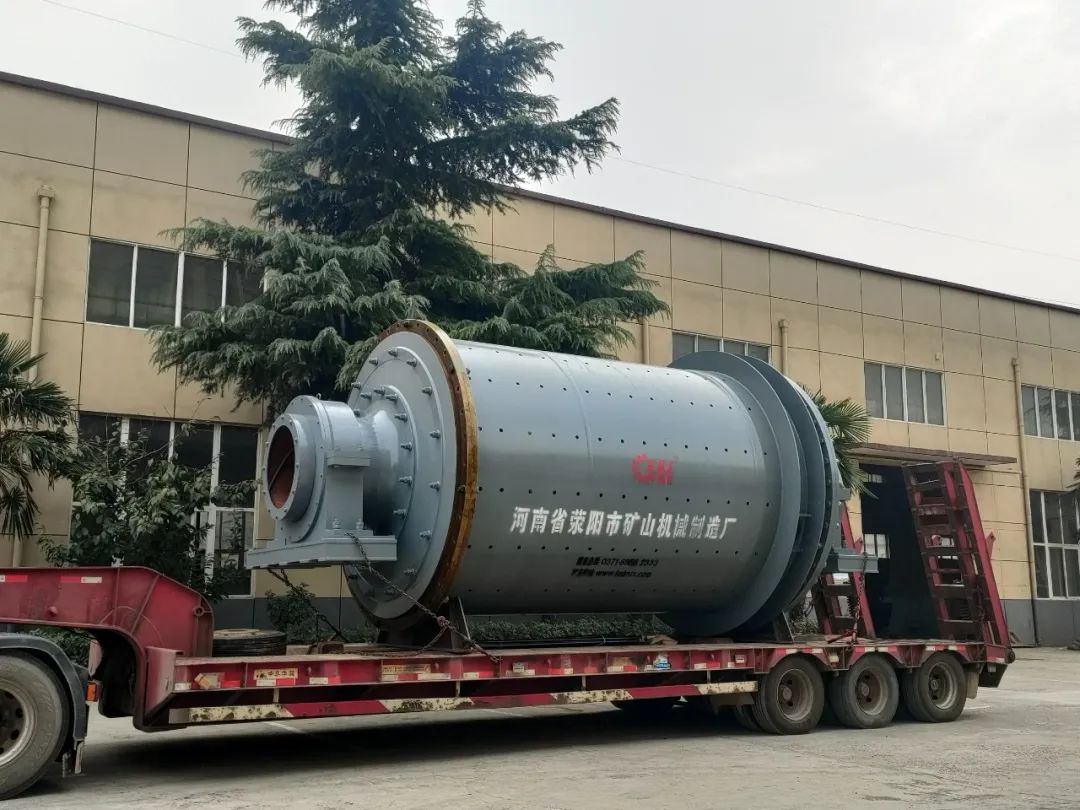Product FAQ
The influence of the size and material of the steel balls of the fluorite ball mill on the output
Fluorite ball mill is a kind of equipment specially used for crushing fluorite. The size and material of the steel ball of the ball mill have an important influence on the quality of fluorite ore powder in terms of particle size distribution, purity, activity, etc., as follows:
Larger steel balls have greater mass and impact force. In the coarse grinding stage, they can effectively crush larger pieces of fluorite ore into smaller particles, improve the grinding efficiency, and make the proportion of coarse particles in the product relatively high. If the diameter of the steel ball is too large, it may cause excessive crushing and produce too many over-crushed particles, affecting the subsequent classification and selection effects.
Smaller steel balls mainly play a grinding role, which can further refine the particles, make the particle size of fluorite ore powder more uniform, and increase the proportion of fine particles in the product. If the diameter of the steel ball is too small and the grinding capacity is insufficient, the grinding time will be prolonged, the production efficiency will be reduced, and the required fineness requirements may not be achieved.
The appropriate size of steel balls can better dissociate the useful minerals from the gangue minerals in the fluorite ore during the crushing and grinding process, which is conducive to the removal of impurities in the subsequent beneficiation process, thereby improving the purity of the fluorite ore powder. If the size of the steel ball is not appropriate, it may lead to insufficient mineral dissociation, impurities are difficult to separate, and purity is affected.
The size of the steel ball affects its contact area and force mode with the ore. Smaller steel balls have more contact points with the ore, and can grind the ore surface more finely, making the shape of the mineral powder particles more regular and the surface smoother. Larger steel balls are mainly based on impact force, which may make the shape of the mineral powder particles more irregular and the surface roughness relatively high. This may affect the performance of the mineral powder in certain applications, such as in the fields of coatings and plastics, where the particle shape and surface characteristics will affect its compatibility and dispersibility with other materials.

High-hardness steel balls, such as those made of alloy steel, have high hardness and good wear resistance. They can maintain a good shape and size during the grinding process and are not easy to deform and wear. This helps to ensure the grinding effect and stability of the ball mill, making the particle size distribution of fluorite ore more stable and the quality more uniform. At the same time, high-hardness steel balls can more effectively break the hard points in fluorite ore, improve grinding efficiency, and help obtain finer mineral powder.
Low-hardness steel balls are easy to wear and will gradually become smaller during the grinding process, resulting in unstable grinding effects and uneven particle size of the mineral powder. Moreover, the debris produced by the wear of low-hardness steel balls may be mixed into the fluorite mineral powder, increasing the impurity content in the mineral powder and reducing the purity of the fluorite mineral powder.
Steel balls with good wear resistance have a long service life, which can reduce the frequency of replacement due to steel ball wear, ensure the continuous and stable operation of the ball mill, and thus facilitate the production of fluorite mineral powder with stable quality. In addition, steel balls with good wear resistance produce less metal debris during the grinding process, which can reduce the risk of fluorite mineral powder being contaminated and improve the purity of the mineral powder.
Steel balls with poor wear resistance wear quickly, which not only increases production costs and maintenance workload, but also may cause a large amount of metal impurities produced by wear to mix into the fluorite mineral powder, affecting its quality. These metal impurities may have adverse effects in subsequent fluorite mineral powder applications, such as affecting the transparency and color of glass in glass manufacturing.
Some alloy steel balls containing specific elements (such as chromium, molybdenum, etc.), in addition to having good hardness and wear resistance, may also have special effects on certain properties of fluorite ore powder. For example, in some cases, the alloy elements in the steel balls may have a weak chemical reaction with certain components in the fluorite ore, changing the surface properties of the fluorite ore powder, thereby affecting its performance in flotation and other mineral processing processes, which helps to improve the mineral processing recovery rate and concentrate quality.
Ordinary carbon steel steel balls have a lower cost, but their hardness and wear resistance are relatively poor, and they are prone to produce more impurities such as rust during the grinding process. After these impurities are mixed with fluorite ore powder, the quality indicators such as whiteness of the ore powder will be reduced, affecting its application in fields with high requirements for purity and whiteness (such as optical materials, high-end chemicals, etc.).
Categories
News
Contact Us
Contact: XKJ GROUP
Phone: 0086 138 3714 0277
Tel: 0371-65751333
E-mail: sales01@xkjgroup.com
Add: Xing yang city, Zheng zhou city, Henan province, China